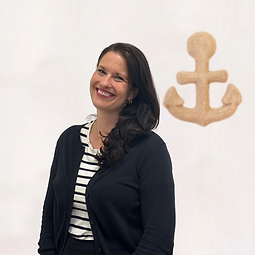Dyadic Developmental Psychotherapy
DDP is practiced in Kitchener-Waterloo, Milton, Oakville, London and the surrounding areas. Anchoridge Counselling takes pride in the therapy practice offered to help clients with individual needs.
Building Connection and Healing Through Attachment-Focused Therapy
When a child or youth has experienced trauma, neglect, or disruptions in attachment, their ability to trust, connect, and regulate emotions can be deeply impacted. Dyadic Developmental Psychotherapy (DDP) is an evidence-based, relationship-focused approach that helps children heal in the context of a safe, supportive relationship — often with a caregiver involved in the process.
At Anchoridge Counselling Services, we offer DDP to support families in rebuilding connection, safety, and trust through a trauma- and attachment-informed lens.
What is Dyadic Developmental Psychotherapy (DDP)?
Developed by Dr. Daniel Hughes, DDP is a specialized form of therapy designed for children and youth with relational trauma, including those in foster care, adoption, or who have experienced early disruptions in caregiving.
The word “dyadic” means “involving two people” — and in DDP, this refers to the therapist working not just with the child but with the caregiver and child together. Healing happens through connection, attunement, and emotional safety.
DDP is grounded in the PACE model:
1. Playfulness
2. Acceptance
3. Curiosity
4. Empathy
These core qualities guide the therapist and caregiver in building trust and helping the child feel emotionally held and understood.
Who Can Benefit from DDP?
1. Have experienced early trauma, abuse, or neglect
2. Are adopted or in foster care
3. Struggle with attachment or relationship difficulties
4. Show emotional dysregulation or behavioural challenges
5. Have difficulty trusting caregivers or feeling safe
6. Experience developmental trauma or complex PTSD
.jpg)
What to Expect in DDP Sessions
1. Build a safe, trusting relationship with the child and caregiver
2. Explore the child’s inner emotional world in the presence of their caregiver
3. Help the caregiver respond to emotional needs with empathy and attunement
4. Guide both parties in processing trauma, misunderstandings, and emotional pain
5. Strengthen attachment and improve co-regulation
Why DDP?
- Unlike behavioural interventions that focus only on surface symptoms, DDP gets to the root cause — the need for safety, connection, and understanding. By involving caregivers in the healing process, the therapeutic gains extend beyond the session and into everyday relationships.

If your child is struggling with emotional or behavioural challenges tied to early trauma or attachment disruptions, DDP can offer a powerful path forward — for both the child and caregiver.

Many of our clinicians incorporate this therapy approach in their practice. A few are listed below, but to explore more options and find your best match, we recommend booking a free 15-minute intake consultation.



